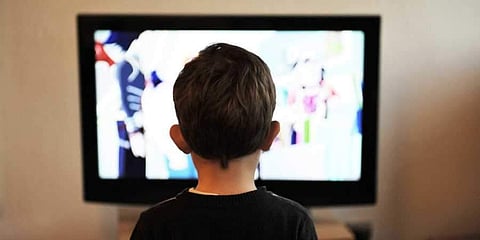

On a punny note, my wife’s my boss... and she’s hooked onto Big Boss. I have absolutely no issues with her watching the show but I haven’t watched any of these till now. Because of different factors like my work, my crazy working hours or my nocturnal habits, I hardly get to make time and go for a movie or watch much TV. Thanks to all the OTT platforms, I can now watch what I want, when I want and how I want to. The real question I’d like to ponder upon today is can we actually stick to our schedules? How must we divide our screen time and finally, how much is too much screen time?
Netflix recently said that India has the highest viewership of films globally. I definitely can relate to it as I’ve watched quite a few of my own on the same platform. Ironically, I was watching one just before writing this article and hence, like most times... I’d rather share my own experiences coupled with science.
The only way out is to take the medical approach and understanding the health risks. Since there are different studies carried out by different companies with different intentions, this is where I’d like to pitch in with my own experiences. We all know that TOO MUCH IS TOO BAD, but when we cannot put our finger on how much is too much, we have no option but to understand the bad. Here are the the top three medical conditions related to excessive screen time.
Sleep issues: A long story short, staring at screens especially during night tricks your brain into thinking it’s still day, not just that, it also makes us hyperactive or makes us keep circling around what we saw as we drifted to sleep and then to let those thoughts affect us mentally too. This not only disturbs your sleep cycle but may also lead to other anxiety and anger-related issues.
Irregular eating habits: Too much screen time not only makes us skip meals or eat too much, it also makes us dependant to such a level that if we don’t watch something, we cannot eat or at least that’s what we presume. I too am guilty of this and now have tapered it down to just taking calls or making a conscious effort to talk to my wife during dinner.
Lack of social interactions: One technique that really helped me was when I realised that I’m not meeting the people whom I really love. The virtual love of likes and comments wasn’t really cutting it.
The next issue is that of the back, neck and hand. Constant cramps, sprains or any other light discomfort is usually brushed off. But a lot of recent studies have proven a link to screen time which in turn have caused variations in posture and finally to different psychological challenges.
How to balance?
The awareness of these conditions is what needs to be considered as an ultimatum even if you’re not facing any of these issues yet. Most Android phones have different programs to cut down on your screen time. The ZEN mode of OnePlus, Digital Wellbeing of Samsung are some examples. You also need to figure out what applications are the most time consuming and need to remove them or set limits.
